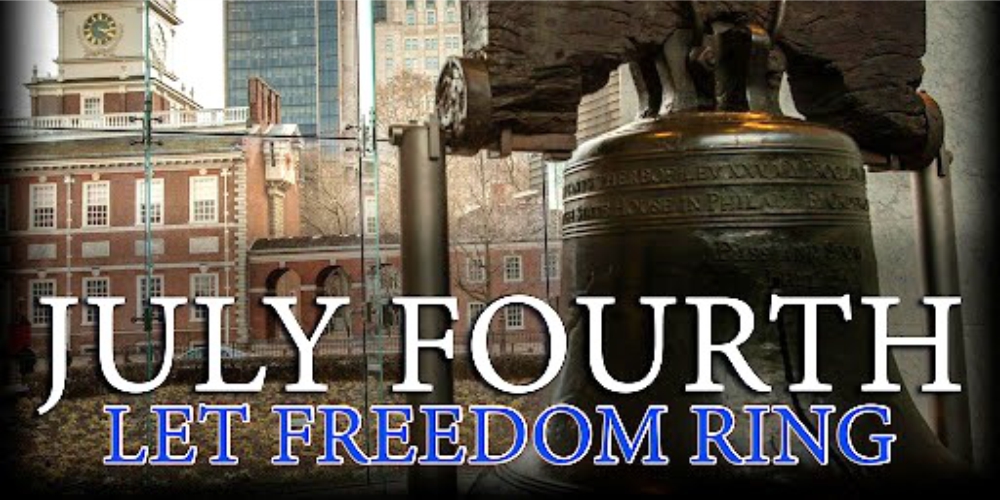Celebrating Our Freedoms—While Staying Connected
July always starts off with a bang—literally—with Fourth of July fireworks across the nation. It’s a jubilant celebration of our Declaration of Independence from the British Crown, unanimously adopted on July 4, 1776, by the Second Continental Congress. That iconic document contains the often-quoted, historic declaration:
We hold these truths to be self-evident, that all men are created equal, that they are endowed by their Creator with certain inalienable Rights, that among these are Life, Liberty and the pursuit of Happiness.
Twelve years later, on June 21, 1788, after much debate, the Constitution was officially adopted by Congress as the new nation’s governing framework—although only 9 of the original 13 states initially ratified it. The Constitution went into effect when Rhode Island ratified it in 1790, and a year later, the Bill of Rights was added. But even then, only 10 of the 12 amendments approved by the First Congress ended up being ratified by the states. And three states did not officially adopt or reject the Bill of Rights until 1939, when the legislatures of Massachusetts, Connecticut, and Georgia ratified the Bill of Rights on the 150th anniversary of the Congressional signing in September 1789.
So, from the beginning, freedom has been a contentious concept guiding our democracy. Yes, we all believe in freedom, but we often have widely divergent ideas of what freedom actually means, which individual rights matter most, and to whom. These debates remain fresh and fractious today, and yet, freedom is the quintessential foundation of our nation, which has the world's longest surviving written charter of government—so far.
As I’ve gotten older, looking forward to my 72nd Fourth of July, what’s become clear to me is not only the importance of individual freedom, but the importance of being free together, connected through collective purpose, despite our differences. Society is not simply an aggregate of individuals, bouncing off each other like a collection of marbles. We are free in community, in unity—that’s what makes our country the UNITED States.
Linking freedom and social connection is critical at all ages, but it came into sharper focus during the COVID-19 pandemic, when many people, especially older adults, suffered from social isolation and loneliness. Even before the onset of the pandemic, about half of U.S. adults reported experiencing measurable levels of loneliness. Last year, U.S. Surgeon General Dr. Vivek Murthy declared a national loneliness and social isolation epidemic throughout the country. The Surgeon General’s Advisory warned that such disconnection can fundamentally affect our mental, physical, and societal health. The physical health consequences of poor or insufficient connection include a 29% increased risk of heart disease, a 32% increased risk of stroke, and a 50% increased risk of developing dementia for older adults. In addition, loneliness and isolation contribute substantially to the risk of developing anxiety and depression.
While the epidemic of loneliness is widespread, the Surgeon General noted, there is also a widely available prescription: social connection. The Advisory details several recommendations that individuals, governments, workplaces, health systems, and community organizations can take to increase connection in their lives, communities, and across the country. Examples range from designing physical environments (parks, libraries, playgrounds) that promote connection to enacting pro-connection public policies, like accessible public transportation or paid family leave. (You can read the full advisory at: https://tinyurl.com/yarwuxt9.)
Some experts suggest that the United States should follow the approach taken by the United Kingdom and Japan, which have appointed a Minister of Loneliness. The U.S. could establish its own equivalent, a cabinet-level position tasked with creating a comprehensive plan to connect people in ways that prevent isolation and mitigate it when it does occur.
Other experts, like Kasley Killam, suggest a broader approach. Killam, author of the just-published book, The Art and Science of Connection: Why Social Health Is the Missing Key to Living Longer, Healthier, and Happier, acknowledges that it’s important to destigmatize the experience of loneliness. At the same time, Killam believes that the emphasis on loneliness has put too much attention on the negative. “I also believe that it’s time to reframe the conversation in an empowering way,” she wrote in a recent op-ed in STAT News. “It’s time to shift the strategy from reactively responding to loneliness to proactively promoting social health.”
By “social health,” she does not mean social drivers of health, or the conditions in one’s environment that contribute to well-being. Instead, “social health is about relationships; it is the dimension of an individual’s overall health and well-being that stems from quality human connections.” Social health, she adds, “is inclusive and preventive: Like not waiting for a cancer diagnosis to take care of your physical health or neglecting mental health until you have an anxiety attack.” (You can hear a previous 45 Forward conversation I had with Killam at https://roelresources.com/45-forward-episode-94/.)
Both Surgeon General Murthy and Killam stress the importance of educating healthcare professionals that relationships help determine their patients’ outcomes, and that connection is a form of medicine. “Our relationships are a source of healing and well-being hiding in plain sight, says Murthy, “one that can help us live healthier, more fulfilled, and more productive lives. Together, we can build a country that’s healthier, more resilient, less lonely, and more connected.”
So this Fourth of July, let freedom ring—and let’s ring the bell together.
—Ron Roel


